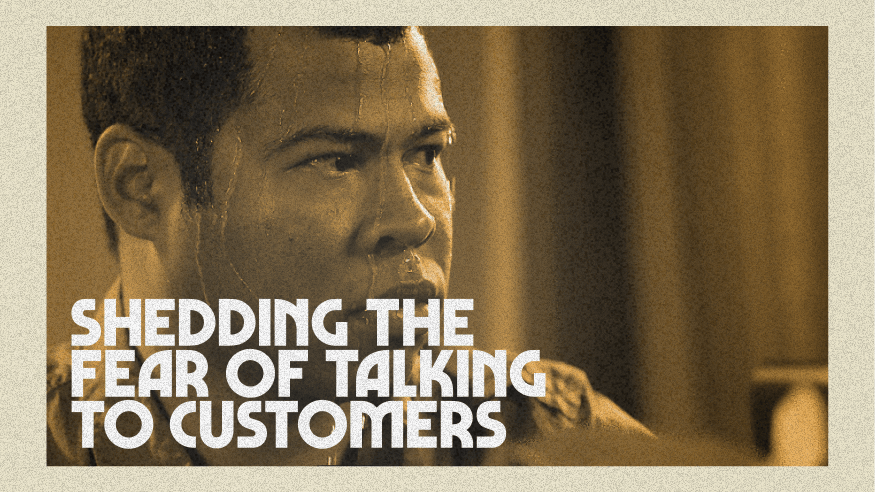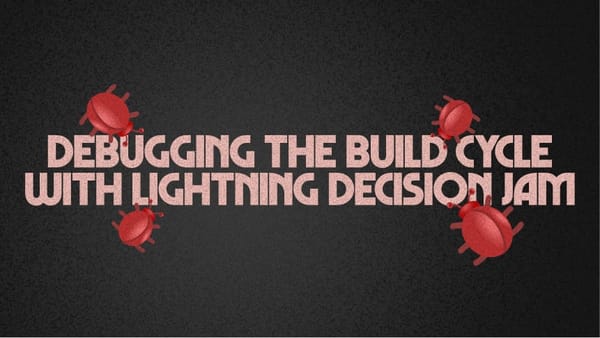Early lessons building a service business
If you're starting a new service-based business, there are tons of things learn. It's never been easier to start a business, but it's also never been harder to get it off the ground.
The following 8 lessons have helped me along the way starting Very Bad Wizards. They're lessons that I wish I knew at the very beginning and what I should've been focusing on.
Let's get into it.
Confidence plays a big role
Starting with no proof of work, all you've got is your guts to know that what you're going to be delivering is pristine. What's better than one gut? Two of them. Find a co-founder with high intelligence, high integrity and high energy. You'll give each other confidence because both of you believe in what you're doing.
Your immediate circle of friends & family are the first people to believe in you
The biggest questions new clients have: "Can you deliver on your promises?" They want to know that you can do what you claim to do. Without having any previous experience, who's going to believe what you're selling? That's right, it's your friends! Talk to them about your idea. They'll spread the word or connect you with someone who might need your services.
Productize what you're doing
Do one thing well and productize it for replicable results. It's easier for clients to refer you when you keep delivering on your promises.
Price low to start
I can't emphasise how important social proof is for a service business. The only way to get it is to do more work. The market is bigger when your price is low because more people can afford you. As you increase your pricing, the market size decreases.
You want more people to be able to work with you early on. And as your knowledge, experience and demand for what you do grows, start pricing higher.
When you do increase it, be aware of anchoring bias. Don't change it too often, you might risk pissing people off.
Doing things for the fun of it increases the opportunity for luck
In our first year of business, we ran a service design experiment for a friend at our co-working space. He wanted to know if there was space for gut-friendly food to sell in Colombo. We thought it would be a fun experiment to do and to get to know the people from our space.
Out of sheer luck, our experiment coincided with another event that attracted the best entrepreneurs in Colombo. We were able to meet a client & now a friend who would be responsible for 80% of referrals we've received until now.
If someone can't afford you, pivot to non-monetary terms
Sometimes people can't afford you but you could help them. If you think those clients are good for it, pivot to non-monetary terms. Maybe they have a newsletter/magazine that they can feature you on? Or, they could refer you to three people who could use what you're doing.
Value exchange for money is great, but other options such as the ones stated above can be better for future business. Always opt for short term pain for long term gain.
Don't be averse to doing free work
"If you're good at something, never do it for free". I disagree. There's a difference between being strategic in your efforts and being taken advantage of.
You need people to talk about what you're doing to other people.
The key is to help those who are vocal and are unafraid of talking about what you do. If your service is great, they would do so because it makes them look good for finding you first!
Collect the proof
After you've delivered your service, get a testimonial to close the loop. As a habit, always end an engagement by getting a testimonial.
Use a platform like VideoAsk to collect video testimonials if your clients are okay with it and host them on your website. Link to it on your sales deck or proposal so new clients can see all the good work you've been doing.
Customers are resistant to giving testimonials for different reasons. Sometimes its because the time isn't right for them. The best time to ask is when they're experiencing a win with your service and their energy levels are high. Also, it helps to tailor the message or the ask towards them personally than using a cookie-cutter template.
Everything you need to know
- Hedge against low confidence by finding a co-founder
- Tell your friends & family about what you solve & how
- Productize what you do. Consistency in delivery makes you easier to sell.
- Price low when you start so that more people can afford to work with you.
- Do things for fun to increase the opportunity for luck.
- Pivot to non-monetary terms where possible.
- Don't be averse to doing free work!
- Collect the proof and close the loop.
The primary lessons orbit around getting social proof. You need it to get work to get more social proof to get more work. A virtuous yin-yang like cycle.
I'd argue that its the main thing you have to worry about starting out. It'll start compounding and you'll start seeing growth sky-rocket in no time.
I appreciate you for taking the time to read this, it means a lot!





